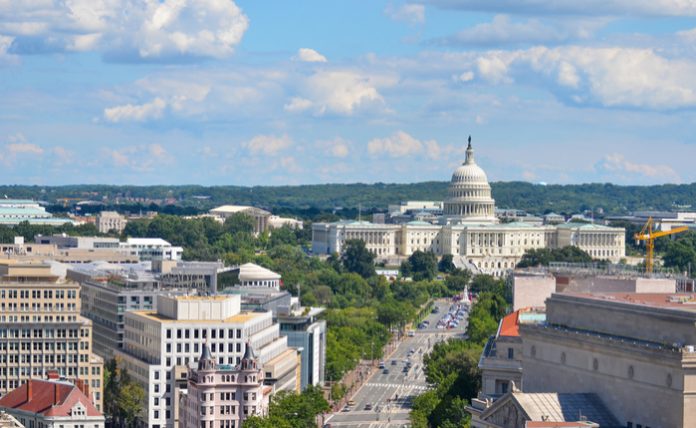Some officials in the U.S. State Department which has been experiencing a lot of turnover lately seem likely to apply the Reaganesque limited government philosophy to the cryptocurrency sector, although other regulators are not necessarily adopting this lassez-faire approach.
Cointelegraph is reporting today that in comments March 6 before the fourth annual DC Blockchain Summit, US State Dept. official Manisha Singh talked about the government allowing the private sector to innovate when it comes to cryptocurrency and blockchain initiatives.
“We want to see other countries adopt light-touch and compatible regulations so the private sector has room to innovate and perfect potential new uses for blockchain,” Singh said. “As the government, sometimes the best thing we can do to help is stay out of the way.”
Singh holds the somewhat bureaucratic sounding title of Acting Undersecretary of State for Economic Growth, Energy and the Environment – which covers any number of waterfronts when it comes to public policy.
That’s a tall order as the State Department vacated by Rex Tillerson continues to struggle with some forms of short staffing and critics suggesting that the department is in some ways “hollowed out.”
“The process of nominating and confirming federal officials has been slowing down for years; the Obama administration had trouble naming ambassadors, too, especially after Republicans won control of the Senate in 2014,” wrote Doyle Mcmanus in the Atlantic last November. “But the Trump administration appears to hold a modern record for the slows. At the end of 2017, Trump’s first year in office, only 64 new ambassadors had been confirmed, filling about one-third of 188 posts. At the end of Barack Obama’s first year, 93 had been confirmed, according to the American Foreign Service Association.”
As the U.S. State Department continues to grapple with the ins and outs of international diplomacy and everything else, Singh ‘s comment suggests that this government office department is likely to give Bitcoin and other cryptocurrencies a long leash.
“We’ll conduct oversight as necessary and ensure public protections,” she said, according to William Suberg’s reporting today, “yet our overall goal is to understand the benefits of the open and decentralized nature of this technology.”
Suberg’s reporting shows that at the same event, Christopher Giancarlo, chairman of the commodity futures trading commission suggested that having blockchain in place prior to 2008 would’ve changed the game on the financial crisis that led to the auto bailouts and everything else that Americans now remember with a shiver down their spines.
Although comments like these suggest that parts of the U.S. regulatory infrastructure are very lenient toward private sector innovation in blockchain, that doesn’t mean that there are no rules in the cryptocurrency sector. Parties like Ripple Labs are making significant efforts to convince the US Securities and Exchange Commission that their tokens are not securities. Others are trying to get a green light for a Bitcoin ETF which has been going on for a long time and has not yet been successful. So it’s not that regulators aren’t doing anything in the cryptocurrency space. Rather, it seems that the State Department, which is pretty peripheral when it comes to regulating blockchain, is throwing out some comments based on a traditional philosophy of government just getting out of the way and letting companies do their work.
In any case, traders can take cheer from the idea that the US government may be softening on cryptocurrency. We reported some weeks ago that other US officials and legislators in both houses were looking to craft legislation that would allow the US to be a leader in blockchain and cryptocurrency – that could only be good for crypto markets on US exchanges, so keep an eye out as widespread adoption continues.










